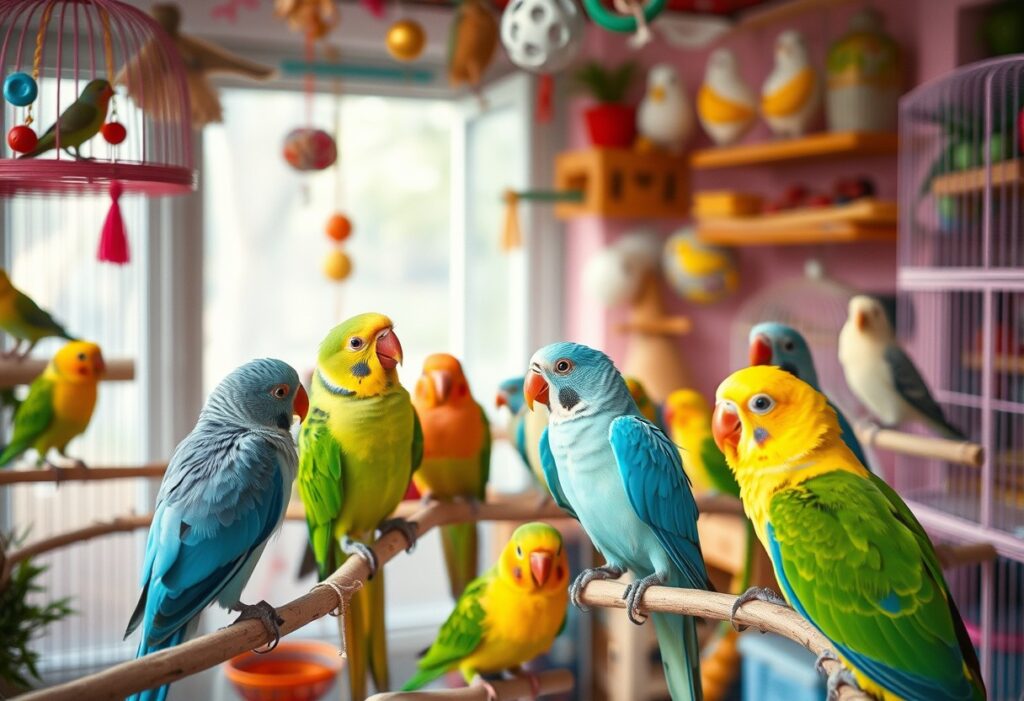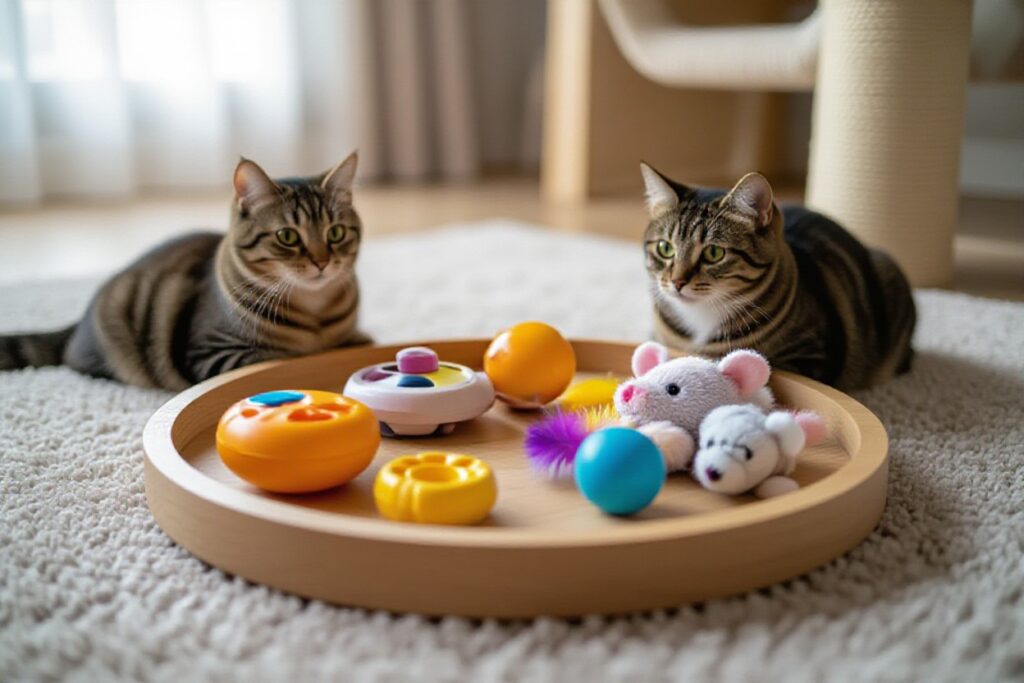Over the past few years, the idea of keeping multiple birds in one household has gained popularity among pet lovers. By welcoming different species into your home, you not only enrich your birds’ social lives, but also cultivate a vibrant atmosphere filled with variety and interaction. However, it’s imperative to ensure proper socialization and compatibility to create a harmonious living environment. In this post, you’ll discover the benefits of having a multi-bird household and learn valuable tips to make it work for both you and your feathered friends.
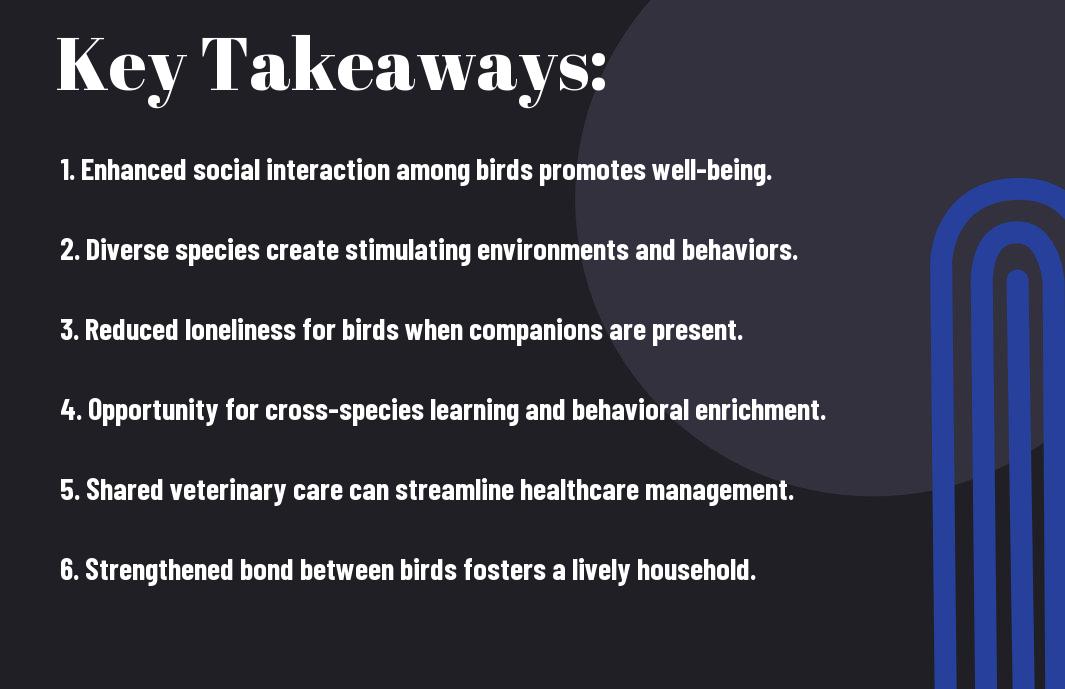
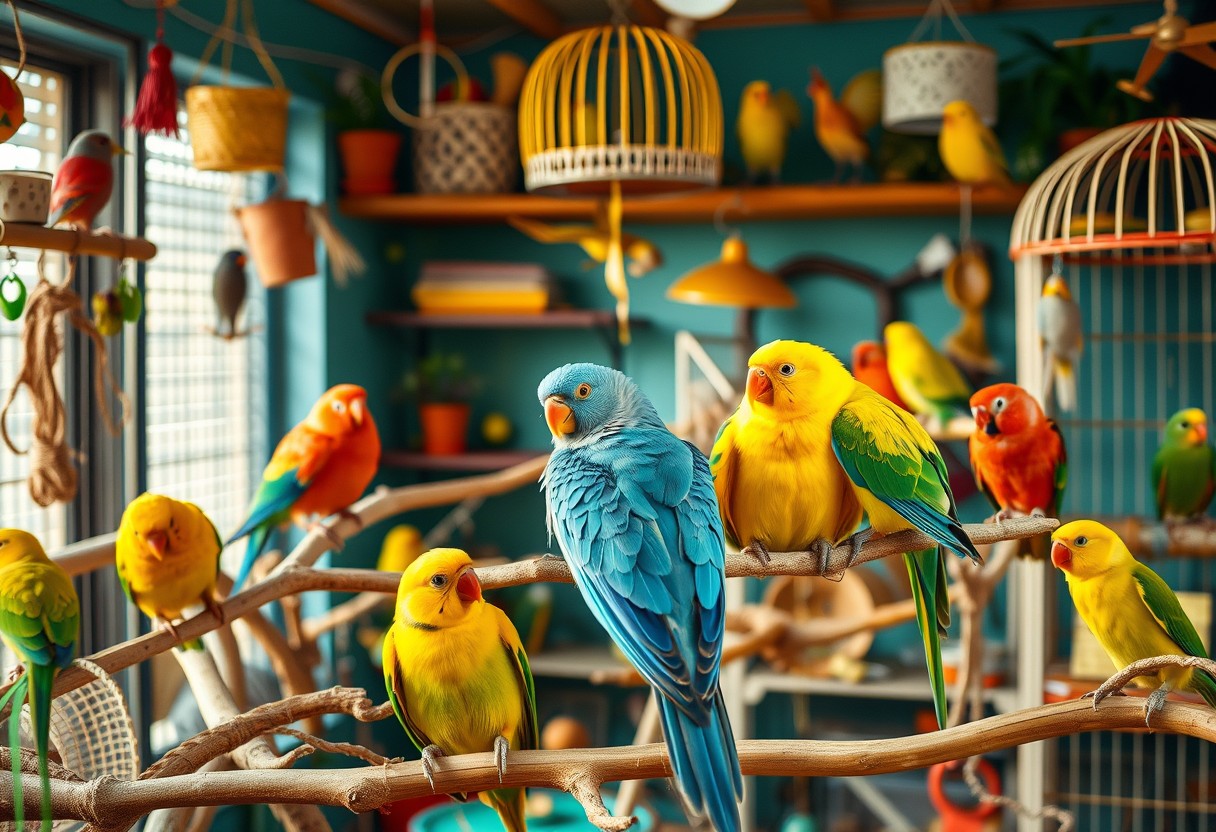
The Social Benefits of Keeping Multiple Birds
Enhanced Social Interaction
Your feathered friends thrive on interaction, and keeping multiple birds allows for enhanced social interaction among them. Birds are inherently social creatures that engage in various social behaviors, such as preening, vocalizing, and even playing together. When you bring multiple birds into your home, you create a vibrant community where they can engage in these natural behaviors, which can lead to improved mental stimulation and wellbeing. This social dynamic can help curb undesirable behaviors that arise from loneliness, such as excessive squawking or destructive tendencies.
Moreover, the presence of companion birds can significantly enrich the environment for your pets. You may find that your birds communicate with one another through a symphony of chirps and songs, creating a lively atmosphere in your home. This interaction not only fosters a sense of camaraderie among your birds but also allows you to enjoy the delightful entertainment that they provide. It’s a win-win situation that contributes to a lively household!
Reduced Loneliness for Birds
Social creatures by nature, birds can experience loneliness and depression when kept alone. By keeping multiple birds, you offer them the chance to reduce loneliness significantly. Social structures among birds are complex; many species thrive in flocks, where the presence of companions helps to elevate their mood and enrich their lives. When you have more than one bird, they can form bonds and provide each other with comfort and companionship.
It’s crucial to recognize that while you may spend time with your birds, you cannot replace the unique interactions they would have with their species. Giving them the company of other birds can lead to a healthier and more emotionally balanced life. With their companions, birds exhibit less stress and anxiety, translating to happier, healthier pets that can enjoy their lives to the fullest.
Natural Behaviors and Social Structure
For bird owners, keeping multiple birds encourages the display of natural behaviors and supports the formation of a social structure. Each species of bird has specific social hierarchies and communication methods that greatly benefit from having companions. In a multi-bird household, your birds will be able to establish their social ranks and engage in natural interactions, such as foraging and playing together. This mimics their behavioral patterns found in the wild and significantly enhances their quality of life.
Benefits of this social structure include lowered stress levels, as birds will not feel isolated or frightened when left alone. Exposure to familiar sounds and sights from their companions can help them feel safe and secure. By fostering these natural behaviors, you’re not just providing companionship but also allowing your birds to fulfill their instinctive needs, which can lead to better health and overall happiness.
Environmental Enrichment
Some pet owners may not realize that keeping multiple birds can greatly enhance their overall environmental enrichment. With various species or even different individuals of the same species, you create a dynamic living space that continuously offers your pets diverse stimuli and activities. Birds are naturally curious and thrive on exploration, so having companions can provide them with a vibrant atmosphere filled with various sounds, colors, and behaviors. This engagement not only stimulates their senses but also encourages healthy social behaviors.
Diverse Stimuli and Activities
Any bird owner will tell you that a single pet can become bored, leading to repetitive behaviors or even stress. However, in a multi-bird household, your feathered friends will encourage one another to engage in different activities, from playful squawking to acrobatic flying. Each bird brings its own set of experiences and personality traits, offering endless opportunities for interaction. Whether it’s exploring new perches or playing with toys, the lively environment you create can significantly boost their happiness and well-being.
Companionship Leading to Play
Any bird in isolation might develop feelings of loneliness, which can lead to depression or behavioral issues. In contrast, having friends of their kind can encourage your birds to engage in more playful antics. With multiple birds in your household, you’ll likely witness the delightful sight of them playing together, preening one another, and sharing toys. This not only keeps them entertained but also reinforces their social bonds, crucial for their mental and emotional health.
Plus, the companionship provided by having multiple birds leads to more vibrancy in everyday life. When your birds engage in play, they release pent-up energy, which can reduce destructive behaviors often stemming from boredom. Your pets will learn from each other, adopting different tricks and interactive behaviors that they might not have explored alone. This social engagement plays a vital role in their development and happiness.
Enhanced Cognitive Engagement
Enrichment also comes in the form of cognitive engagement. With more than one bird around, your feathered companions will naturally challenge and stimulate each other’s intellect. They can learn new skills or mimic behaviors from one another, fostering an environment of constant learning. This intellectual stimulation is crucial for their mental health, helping prevent conditions related to boredom and stress.
To maximize your birds’ cognitive engagement, you should provide a variety of toys and challenges that they can interact with together. Consider introducing puzzle toys or foraging opportunities that require teamwork to solve. This not only hones their critical thinking skills but also promotes cooperation among your birds, further deepening their social bonds and enhancing their overall quality of life.
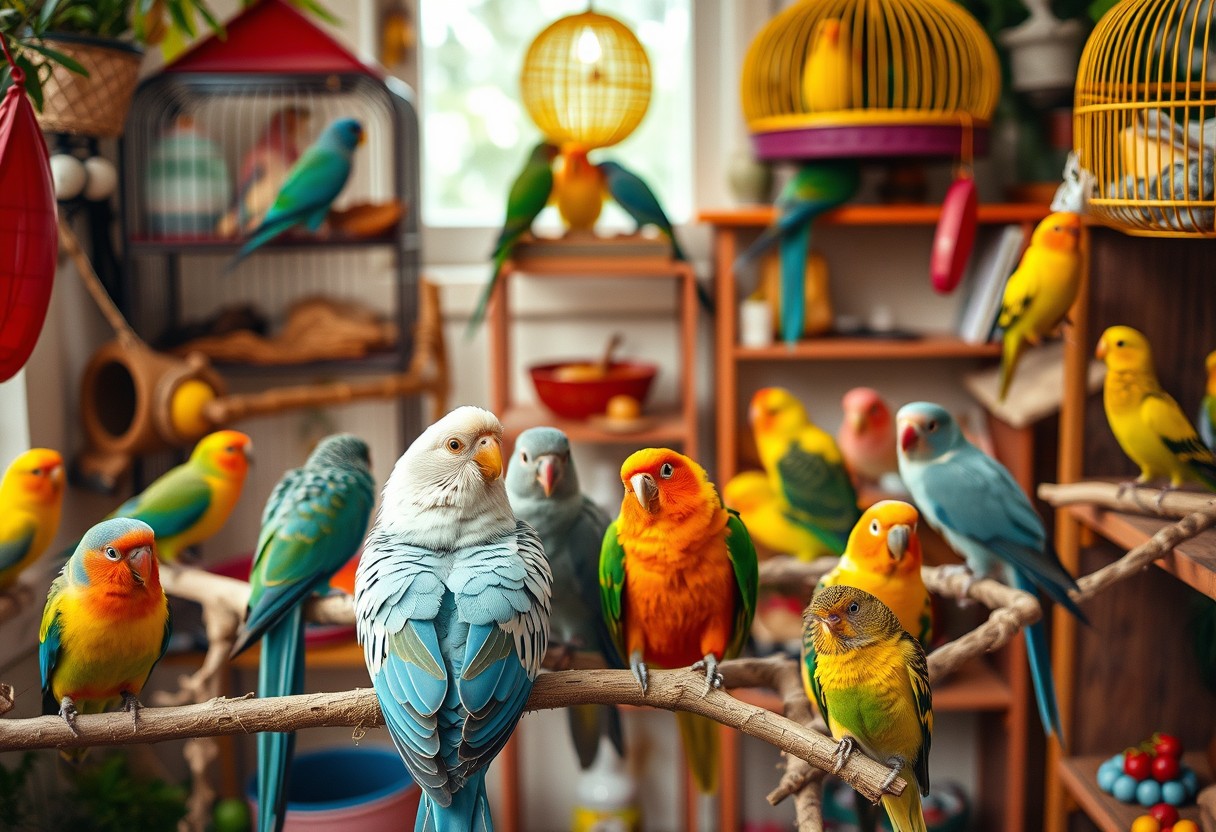
Health and Well-being
After adopting multiple birds, you may notice significant improvements in your overall health and well-being. Living with a variety of avian companions can create an enriching environment that promotes both physical and mental wellness. Interacting with these creatures often encourages you to engage in regular activities such as cleaning their cages, preparing their food, and spending time out of your busy day to enjoy their company. This active involvement not only boosts your physical health but can also lead to a more organized and structured home routine.
Reduced Stress Levels
Wellbeing is greatly enhanced in a multi-bird household due to the reduced stress levels you may experience. Birds often create a lively and joyful atmosphere with their chirps and playful behaviors, helping to alleviate daily tension. Spending time watching their antics or listening to them sing can serve as a perfect stress-relief mechanism, allowing you to focus on the more enjoyable aspects of life. Moreover, the bonds you form with each bird can also act as a calming agent, giving you a sense of purpose and connection.
Improved Emotional Health
The emotional landscape of your life can drastically improve when you welcome multiple birds into your home. The relationships you cultivate with each unique bird can foster a sense of belonging and companionship, reducing feelings of loneliness or depression. These vibrant creatures can also serve as great conversational starters, facilitating social interactions and connections that are vital for emotional wellbeing.
A multi-bird household not only provides entertainment and joy but also encourages you to express love and care, which are necessary components of good mental health. By nurturing your feathered friends, you can channel your emotions positively, enhancing your sense of happiness and fulfillment.
Benefits of Bird Companionship
Benefits of having birds around extend beyond mere companionship; they contribute significantly to your emotional landscape. You might find your daily routine infused with excitement and joy as you observe their behaviors and engage with them more actively. This companionship reminds you of the importance of care, patience, and consistency in relationships. Moreover, the responsibility of caring for multiple birds can provide a sense of accomplishment, further boosting your emotional health.
Birds often reciprocate affection in their unique ways, enhancing your daily life with warmth and comfort. The act of engaging with them, whether through conversations or playful interactions, can improve your overall mental state, making you feel more engaged with the world around you.
Bird companionship can transform your home into a lively sanctuary, reminding you every day of the simple joys of life. Each bird brings its personality and quirks, contributing to a vibrant, engaging atmosphere that keeps your spirits high.
Practical Considerations for a Multi-Bird Household
Keep in mind that a multi-bird household demands thoughtful planning and adaptability to ensure a thriving environment for all your feathered companions.
Space and Habitat Requirements
An crucial aspect of maintaining a harmonious multi-bird household is ensuring that you have adequate space and appropriate habitat for each bird. Birds need ample room to fly, explore, and interact with their environment. It’s important to research the specific space requirements for each type of bird you plan to house together, as larger species often need significantly more territory than smaller ones. Ensure that each bird’s habitat is spacious enough to prevent stress and territorial disputes. You may want to consider a large aviary or multiple cages that can be arranged to allow for interaction while also providing a sense of personal space.
Additionally, your birds will require a safe environment that accommodates their natural behaviors. This includes perches at different heights, toys for mental stimulation, and secluded areas where they can retreat when they need a break from socializing. Remember that clutter can lead to chaos, so keeping their living space well-organized and clean is vital for both their physical and mental well-being.
Dietary Needs and Sharing Food
The dietary needs of your birds can vary significantly between species, making it crucial to understand what each of your birds requires to thrive. A well-balanced diet for one bird may not meet the nutritional requirements of another, so it’s crucial to provide species-appropriate foods. For example, while some birds thrive on seeds, others will need fresh fruits, vegetables, and fortified pellets. You can either provide separate dishes for each bird or consider options for group feeding with appropriate foods that suit all, being mindful of potential food allergies.
Sharing food among different species can be a delightful way to encourage interaction, but you must always ensure that the food provided is safe for each bird. Certain foods that are healthy for one type of bird can be harmful to another. Monitor their feeding habits closely, as competition for food can lead to aggressive behavior between birds. It’s advisable to feed them in a way that minimizes conflict, perhaps by spreading out food sources or offering meals at staggered times.
Introducing New Birds to the Household
To successfully introduce new birds into your home, you should take a structured approach to mitigate any stress or territorial issues that may arise. Start by keeping the new bird in a separate cage, allowing both your existing birds and the newcomer to see and hear each other without direct contact. This gradual introduction helps all birds become accustomed to each other’s presence and reduces the likelihood of aggressive behavior. Over time, you can allow supervised interactions, observing their behaviors for any signs of discomfort or aggression.
Another important aspect of this process is to observe their interactions closely during initial meetings. It’s crucial to monitor body language for signs of stress, aggression, or fear. If you notice any negative interactions, you may need to separate the birds again and give them additional time to acclimate. With patience and careful management, you can create a peaceful environment where your feathered friends can coexist and flourish together.
Final Words
To wrap up, maintaining a multi-bird household can significantly enhance your experience as a bird owner. The social and interactive nature of birds means that having multiple species can lead to a lively and dynamic atmosphere in your home. You will find that the presence of fellow avians can help alleviate loneliness, reduce stress, and promote natural behaviors that individual birds might not display. Each bird brings its unique personality and charm, ultimately enriching your daily interactions and providing endless entertainment.
Additionally, a diverse avian companion group can foster better mental stimulation for your birds, encouraging them to engage in more complex social interactions. You will likely notice a decline in behavioral problems, such as excessive screaming or feather plucking, as they benefit from the companionship and stimulation provided by their flock. By observing and understanding the varying needs and behaviors of different species, you will also become more knowledgeable and skilled as a bird owner. Ultimately, creating a multi-bird environment allows you to cultivate a vibrant and harmonious home, where both you and your birds can thrive together.
Q: What are the social benefits of having multiple birds in one household?
A: Having multiple birds can significantly enhance their social interactions. Birds are naturally social creatures, and living with other birds allows them to engage in imperative bonding activities. This socialization can prevent loneliness and depression that a solitary bird may experience. Additionally, birds in a multi-bird household often mimic each other’s calls and behaviors, which can lead to increased mental stimulation and enrichment. The variety of interactions can also help them develop better social skills, contributing to their overall well-being.
Q: How does a multi-bird household impact the environment and care routine for pet owners?
A: While a multi-bird household does require extra care and attention, it can also create a rich, enriching environment that can benefit both the birds and the owners. Owners often find that when they have more than one bird, the birds entertain each other, potentially making it easier for the owner to manage their needs. However, it’s imperative to understand that each bird will require individual attention, as well as shared interaction time. Establishing a routine that involves interaction, feeding, and cleaning can foster a sense of community among the birds and also provide pet owners with joy as they observe unique dynamics and interactions between the birds.
Q: Are there any considerations to keep in mind when introducing new birds to an existing flock?
A: Yes, introducing new birds to an existing flock requires careful planning and consideration. It’s important to ensure that the introduction process is gradual and that the birds are compatible in temperament and species. Quarantining new birds for at least 30 days before introducing them to your flock is critical to ensure they are healthy and to prevent the spread of diseases. When the time comes for introduction, create separate spaces for the new birds and the existing ones, allowing them to become familiar with each other’s sounds and sights before direct interaction. Setting up areas where they can mingle safely will help in easing tensions and facilitating smoother introductions. Monitoring their interactions closely is crucial to ensure that everyone is comfortable and to prevent aggressive behavior or bullying between birds.
